The Green Party of Aotearoa New Zealand, commonly known as Green or the Greens, is a green political party in New Zealand. Like many green parties around the world, it has four pillars. The party's ideology combines environmentalism with social democratic economic policies, including well-funded and locally controlled public services within the confines of a steady-state economy. Internationally, it is affiliated with the Global Greens.

Jeanette Mary Fitzsimons was a New Zealand politician and environmentalist. She was the co-leader of the Green Party of Aotearoa New Zealand from 1995 to 2009, and was a Member of Parliament from 1996 to 2010.

Metiria Leanne Agnes Stanton Turei is a New Zealand academic and former politician. She was a Member of Parliament from 2002 to 2017 and the female co-leader of the Green Party of Aotearoa New Zealand from 2009 to 2017. Turei resigned from the co-leader position on 9 August 2017 amid a political controversy arising from her admission to lying to the Ministry of Social Development to receive higher payments when she was on the Domestic Purposes Benefit and later, to being enrolled to vote in an electorate where she was not eligible when she was 23.
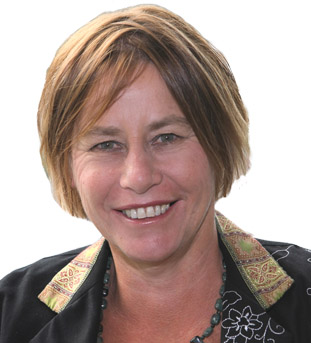
Sue Bradford is a New Zealand activist, academic, and former New Zealand politician who served as a list Member of Parliament representing the Green Party from 1999 to 2009.
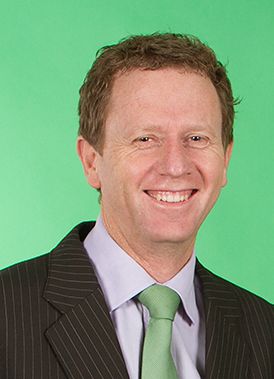
Russel William Norman is a New Zealand politician and environmentalist. He was a Member of Parliament and co-leader of the Green Party. Norman resigned as an MP in October 2015 to work as Executive Director of Greenpeace Aotearoa New Zealand.
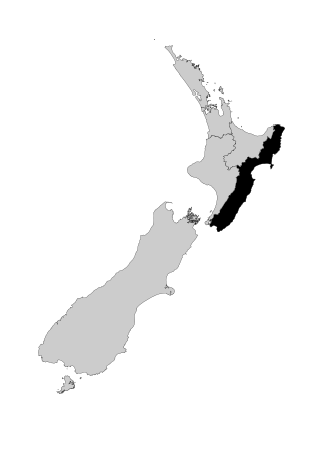
Ikaroa-Rāwhiti is a New Zealand parliamentary Māori electorate that was formed for the 1999 election. It covers the eastern North Island from East Cape south through Hawke's Bay and the Wairarapa to Wainuiomata and most of the Hutt Valley, but not southern Lower Hutt or Wellington City.

Catherine Delahunty is a New Zealand politician and environmentalist. From 2008 election until 2017 she was a member of parliament in the House of Representatives representing the Green Party.

Kennedy Gollan Montrose Graham is a New Zealand politician and former Member of Parliament for the Green Party. He has served in the New Zealand Foreign Service for sixteen years, and lectured at the University of Canterbury and Victoria University of Wellington.

The 2014 New Zealand general election took place on Saturday 20 September 2014 to determine the membership of the 51st New Zealand Parliament.

David James Clendon is a New Zealand former politician. He was a list Member of Parliament in the New Zealand House of Representatives for the Green Party of Aotearoa New Zealand from 2009 until 2017. He later served one term on the Far North District Council from 2019 to 2022.

Gareth Thomas Llewelyn Hughes is a New Zealand activist and a former politician of the Green Party. He was a member of the New Zealand Parliament for eleven years, from 2010 to 2020. He first took a seat part way through the 49th Parliament as the next person on the Green party list following the retirement of Jeanette Fitzsimons in February 2010. He did not stand for re-election in the 2020 general election.

Heather Janet Logie is a New Zealand politician and a former member of the New Zealand House of Representatives. She is a member of the Green Party of Aotearoa New Zealand.
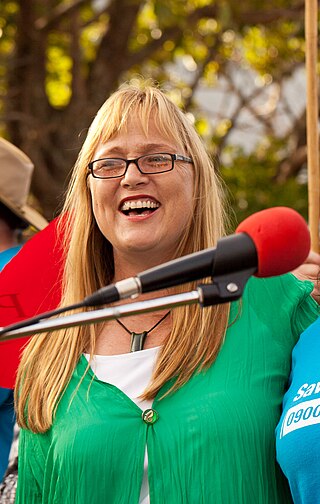
Denise Maree Roche is a New Zealand politician. She was a member of the Waiheke Local Board and the New Zealand House of Representatives, where she represented the Green Party of Aotearoa New Zealand from 2011 to 2017.

Steffan John Browning is a New Zealand politician of the Green Party of Aotearoa New Zealand. He was elected as a member of the House of Representatives in 2011 and retired in 2017.
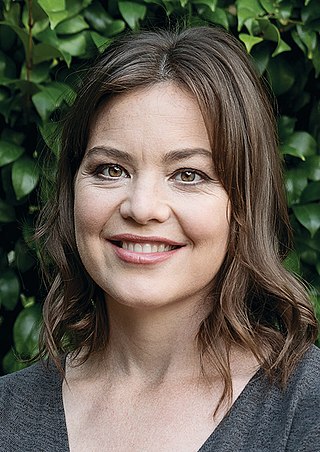
Julie Anne Genter is an American-born New Zealand politician who is a member of the House of Representatives representing the Green Party of Aotearoa New Zealand. Genter was elected to each Parliament from 2011 to 2023 on the party lists, before being elected as the Member of Parliament for the Rongotai electorate in the 2023 election. She served as the Minister for Women, Associate Minister for Health and Associate Minister for Transport during the first term of the Sixth Labour Government. She holds dual citizenship of New Zealand and the United States.
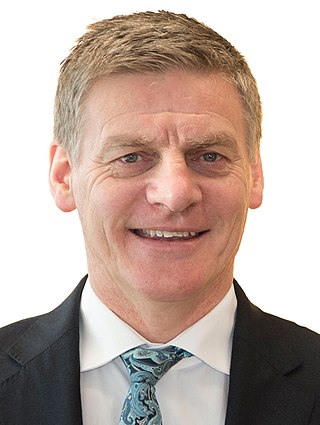
The 2017 New Zealand general election took place on Saturday 23 September 2017 to determine the membership of the 52nd New Zealand Parliament. The previous parliament was elected on 20 September 2014 and was officially dissolved on 22 August 2017. Voters elected 120 members to the House of Representatives under New Zealand's mixed-member proportional (MMP) voting system, a proportional representation system in which 71 members were elected from single-member electorates and 49 members were elected from closed party lists. Around 3.57 million people were registered to vote in the election, with 2.63 million (79.8%) turning out. Advance voting proved popular, with 1.24 million votes cast before election day, more than the previous two elections combined.
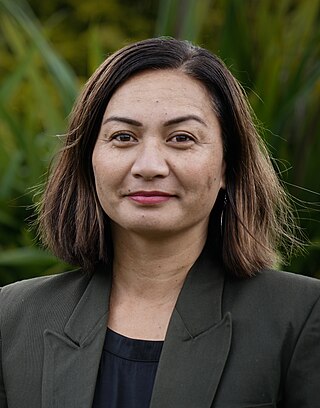
Marama Mere-Ana Davidson is a New Zealand politician who entered the New Zealand Parliament in 2015 as a list MP representing the Green Party of Aotearoa New Zealand, of which she became the female co-leader in 2018.
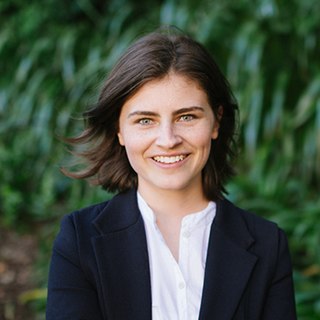
Chlöe Charlotte Swarbrick is a New Zealand politician. Following a high-profile but unsuccessful run for the 2016 Auckland mayoral election, she became a parliamentary candidate for the Green Party of Aotearoa New Zealand, standing in the 2017 New Zealand general election, and was elected as a member of the New Zealand Parliament at the age of 23. In the 2020 election, Swarbrick was elected as the Member of Parliament for Auckland Central, becoming the second Green Party MP ever to win an electorate seat, and the first without a tacit endorsement from a major party leader. She retained Auckland Central in the 2023 election. In March 2024, she was elected co-leader of the Green Party. Swarbrick is Green Party Spokesperson for Mental Health, Drug Law Reform, Revenue, Climate Change, and Finance.

The Young Greens of Aotearoa New Zealand is the youth wing of the Green Party of Aotearoa New Zealand, and a member of the Global Young Greens. The Young Greens represent Green Party members 35 years of age and under. The Young Greens were founded by MP and then Young Green Gareth Hughes in 2006.

Elizabeth Anne Kerekere is a New Zealand politician and LGBTQ activist and scholar. She was elected a member of parliament for the Green Party in 2020, but resigned from the Greens on 5 May 2023, following allegations of bullying within the party. Kerekere remained in parliament as an independent until the 2023 election.




















